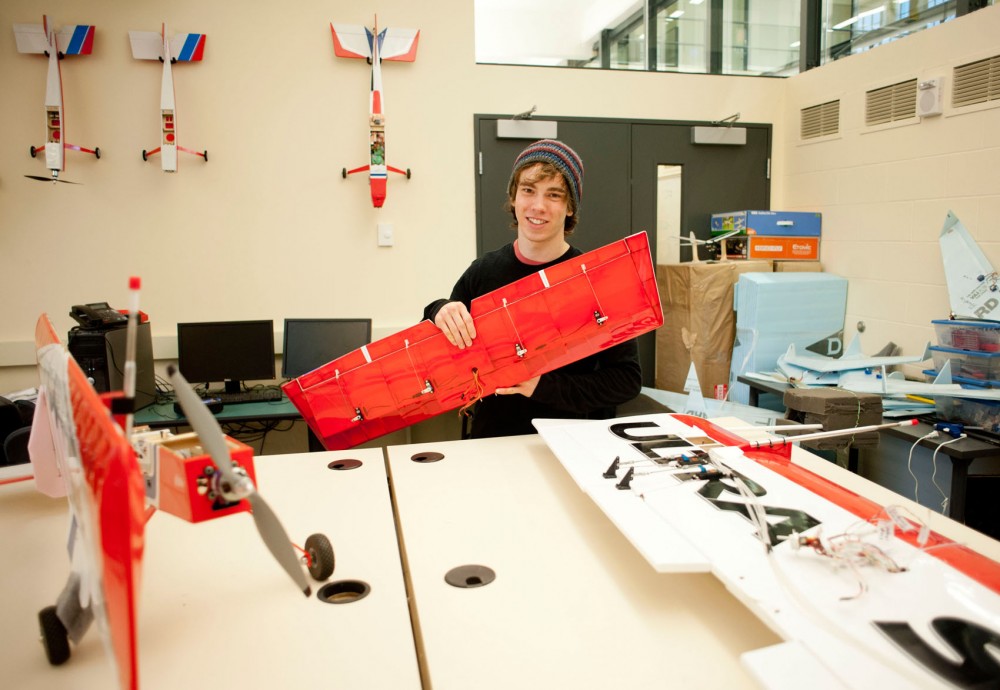Monica Youssef was intrigued by Dr. Jasjit Ahluwalia’s speech at a Minnesota Medical Leaders meeting.
After exchanging several emails, the two began a mentor relationship. “I was so intrigued by what he was saying, and there was something in me that said, ‘I need to talk to this guy,’” Youssef said.
Youssef is one of 25 student participants in the University of Minnesota’s Undergraduate Research Opportunity Program who conduct research unique to their academic interests, present their findings at national conferences and get their work published in acclaimed research journals.
Undergraduate researchers say they have developed close relationships with faculty mentors who can help push their research in new directions or provide career advice and recommendations.
UROP is available to any undergraduate student in any degree program, freshman to senior, who maintains good academic standing.
The UROP program provides money for the students who integrate themselves within this program. For every 120 hours of work, they receive a $1,400 stipend. On average, students are given $300 for project expenses.
Youssef, a chemistry major, is among 2,200 undergraduates who will present at the 2012 National Conference on Undergraduate Research at Weber University in Utah. Twenty-five are from the University of Minnesota.
Youssef will present her findings on non-daily smokers. She conducted research on health disparities pertaining to African-American, Latino and white populations to find trends in non-daily smoking habits.
“I find it intriguing that people go for long periods of time without experiencing withdrawals in nicotine,” Youssef said. “So what makes them want to smoke just 10 cigarettes in a month?”
She controlled her research with focus groups and surveys among the three population groups in order to spot different trends and develop an intervention plan.
Youssef remembered Ahluwalia telling her the program benefits the student more than the researcher. So Youssef saw it as a very humbling experience that he was willing to work with her.
“He wrote my recommendation letter for med school and has continued helping me for personal and professional things,” she said.
In addition, Ahluwalia helped Youssef develop an abstract for the Society for Research on Nicotine and Tobacco in Madison.
“This experience has been nothing but a dream this past year,” Youssef said.
James Rosenthal, an electrical engineering senior in the program, is analyzing the aerodynamics on a smaller model plane to see if the behaviors are similar on a larger-scale plane.
“I spent a lot of time in the wind tunnel and decoding from that data how much we can assume and compare between the two models,” Rosenthal said.
Being in charge of your own research project can seem daunting. However, students choose a mentor to help them throughout the process and assist when necessary.
“It worked out really well with my mentor … He provided me with a letter of recommendation when I was applying to jobs, and I know we will stay in contact,” Rosenthal said.
Staying in touch is a trend in the program.
“The relationship made between a student and their mentor is truly priceless,” said UROP coordinator Vicky Munro.
Mentors are there to give support and guidance when necessary and to also help push students toward something they might not do on their own.
“When I went to my mentor, Teresa Jacobson Kimberley, I went to find a job. Then she mentioned the UROP project and directed me toward that,” said kinesiology major Rebekah Schmidt.
Schmidt’s research dealt with brain activity when conducting certain tasks in healthy people compared to people with dystonia — or writer’s cramp.
“Because of this project I have been hired on as a research assistant, and I’m now able to be a part of a number of things in the lab,” Schmidt said.
Schmidt’s project will be showcased at the conference in Utah, and portions of her research will be published in a physical therapy journal.
Degi Tserendamba, an education senior, wanted someone who worked well with international students. Tserendamba was directed to Catherine Solheim who helped her study societal traditions creating a generational gap in Tserendamba’s home country, Mongolia.
“[Solheim] not only supported me personally but also invited the whole community to take interest in my research, which has been incredible encouragement for me to go further.”


